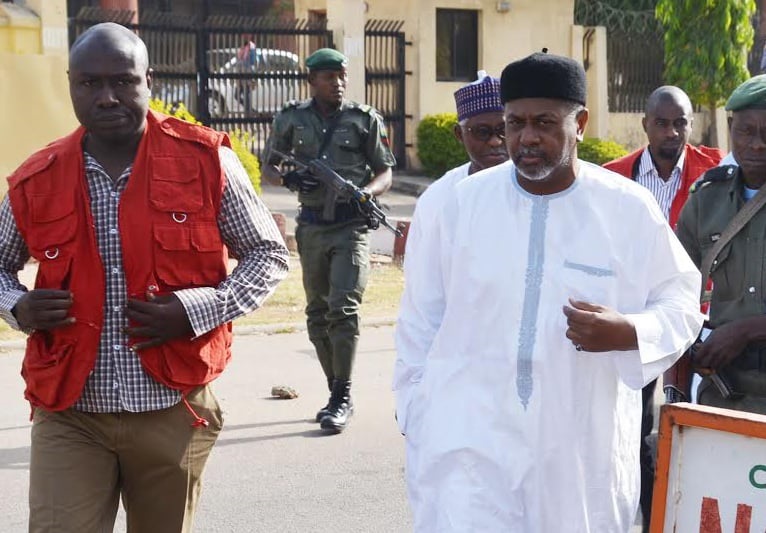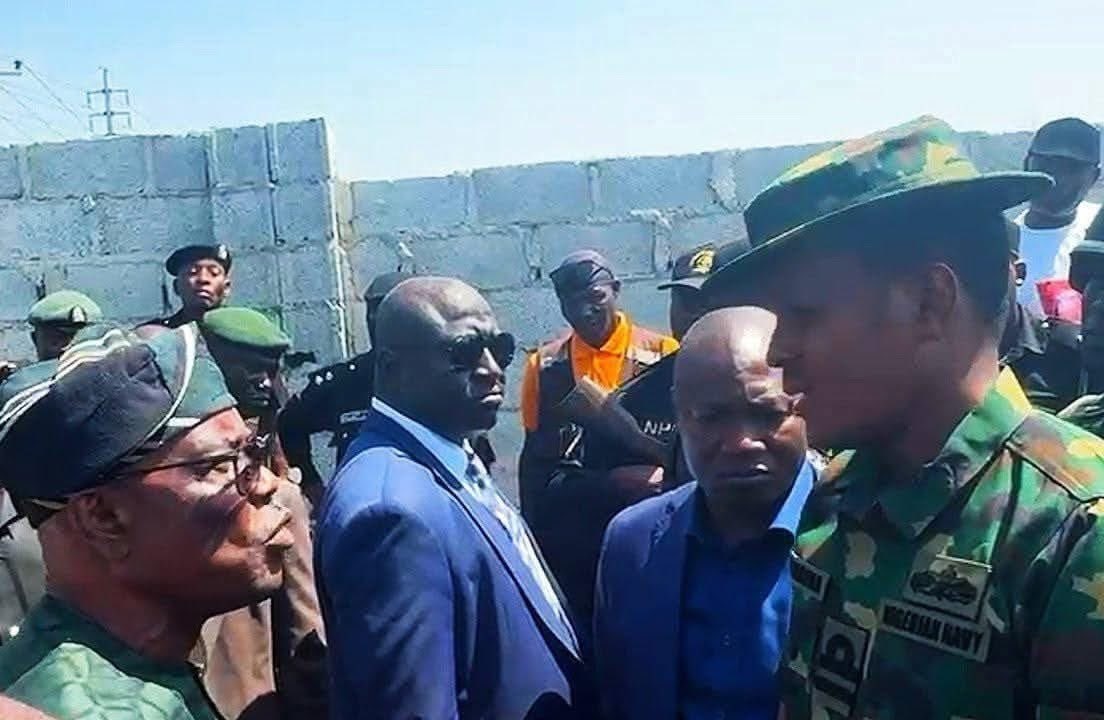EFCC’s witness, Bello Umar, has revealed how Olugbenga Obadina received N2.1 billion from the office of the former National Security Adviser, Col. Sambo Dasuki (rtd.), without executing a contract.
Umar, the first prosecution witness (PW-1), made this known before Justice James Omotosho of a Federal High Court in Abuja while being led in evidence by Economic and Financial Crimes Commission (EFCC) lawyer, Ibrahim Buba.
The News Agency of Nigeria (NAN) reports that Obadina is the Chairman and Chief Executive Officer (CEO), Almond Projects Limited.
The trial is part of the ongoing case in the alleged misappropriation of N33.2 billion meant for the purchase of arms by Dasuki, who was the then NSA during ex-President Goodluck Jonathan administration.
The money was allegedly part of funds earmarked by the Federal Government to fight Boko Haram insurgency in the northeast.
The witness, an investigator with the anti-graft agency, said he knew Obadina and his company, listed as 1st and 2nd defendants in the charge marked: FHC/ABJ/CR/142/2016.
He told the court that his schedule of duties were to carry out investigations and do financial analysis where there is need.
Umar said he got to know Obadina through a complaint lodged by the NSA’s office “that there was a contract execution which he did not do after receiving the whole amount.”
The investigator said after the complaint, a letter was written to the NSA’s office to furnish the team with Obadina ‘s payment schedule
“We also wrote letters to various banks to provide us with bank statements.
“We contacted the office of the National Security Adviser to verify the conclusion or execution of those projects.
“They told us they did not have any contract with the defendants.
“The total amount of the money is N2.1 billion naira,” the PW-1 said.
The witness said Obadina was invited by the investigating team but that all the explanations he gave could not hold water.
According to him, he (Obadina) could not show any tangible projects of the contract executed, because no contract exists.
He said his team was able to confirm that Obadina was the owner of the company, allegedly used to siphon the funds, through an investigating letter written to the Corporate Affairs Commission (CAC).
When the EFCC lawyer asked Umar how the money was paid to Obadina, the witness said: “It was paid in six tranches.”
H said part of the money was paid into the Guarantee Trust Bank (GTB) account while others were paid into the Zenith Bank account.
According to the PW-1, the bank accounts carry the name of the defendant and his company.
Umar said Obadina’s statement was taken in the presence of his lawyer, called Dr Nasiru.
The witness identified all the documents sought to be tendered as exhibits by Buba, including letters from the NSA’s office, the extra-judicial statement, the statements of accounts from GTB and Zenith and the document from CAC.
Buba then sought to tender the six documents identified by Umar.
Obadina’s counsel, Adeola Adedipe, SAN, objected to the admissibility of some of the documents on the ground that they were not certified by the institution in custody (CBN), citing Section 102 of the Evidence Act and other relevant laws, including a previous case, to back his argument.
Adedipe said: “I will not object the CAC documents, the GTB and the Zenith Bank statements.”
He, however, opposed the admissibility of the letter from the NSA’s office, dated May 5, 2016.
The senior lawyer also objected to the admissibility of the extra-judicial statement written by Obadina, arguing that the statement was not voluntarily made.
Adedipe told the court that Obadina was in custody of the EFCC for about 40 days before the statement was taken.
“In fact, the defendant has to approach a court for his fundamental right and there is judgment to the effect,” he added.
He submitted that Obadina’s extra judicial statement was obtained in violation of Sections 28 and 29 of the Evidence Act, and Section 17(2) of Administration of Criminal Justice Act (ACJA), 2015, among others.
“There was no video recording and no lawyer presence,” he argued, urging the court to reject the documents.
Buba disagreed with Adedipe.
He argued that the NSA’s letter, titled: “Re-Investigation Activities,” dated May 5, 2016, was very relevant to the proceeding contrary to the defence submission.
“The documents are annexures to the main document which is a letter from the NSA office.
“The documents themselves originated from the NSA’s office to the CBN and the originals were received by the CBN and acknowledged in a separate copy.
“These documents are in the office of the NSA and it is the NSA that is competent to certify them.
*We urge my lord to discountenance the argument,” he said.
On Obadina’s statement, Buba said the witness never told the court that the statement, in question, was a confessional statement that required a video evidence, citing Section 15(2).
According to the lawyer, the witness said the statement was recorded in the presence of his lawyer.
However, he said if the defence is insisting that the statement was not voluntary, the prosecution would be applying for a trial-within-trial to establish its voluntariness.
Justice Omotosho, therefore, admitted documents from the GTB and Zenith Bank, the CAC document and a letter from NSA’s office as Exhibits PWA, PWB, PWC and PWD respectively.
The judge, however, adjourned until Dec. 2 for a ruling on a letter dated May 5, 2016.
Obadina was re-arraigned on Jan. 13, 2024, by the anti-graft agency on eight-count charge bordering on money laundering to the tune of N2.17 billion.
He, however, pleaded not guilty to the charge and was admitted to N500 million bail with two sureties in like sum.
In court three of the charge, Obadina and Almond Projects Ltd were alleged to have, on April 3, 2014 directly taken possession of N648 million which was paid into the account of Almond Projects Ltd with Zenith Bank Plc Account No: 1010921116.
The money was allegedly paid from the account of the office of the NSA from the CBN without contract award.
The agency said the fund formed part of the proceeds of an unlawful activity of Col. Dasuki and the offence is contrary to Section 15(2), (d) of the Money Laundering (Prohibition) Act, 2011 as amended in 2012 and punishable under Section 15(3) of the same Act.
NAN reports that Obadina was earlier arraigned before Justice Nnamdi Dimgba in 2016.
Justice Dimgba had, on July 4, 2024, adjourned for adoption of final written addresses after the EFCC had closed its case after calling four witnesses and the defendants called two witnesses before he was elevated to the Appeal Court.





